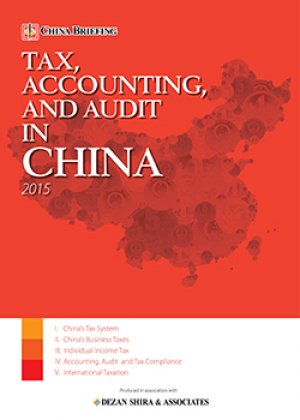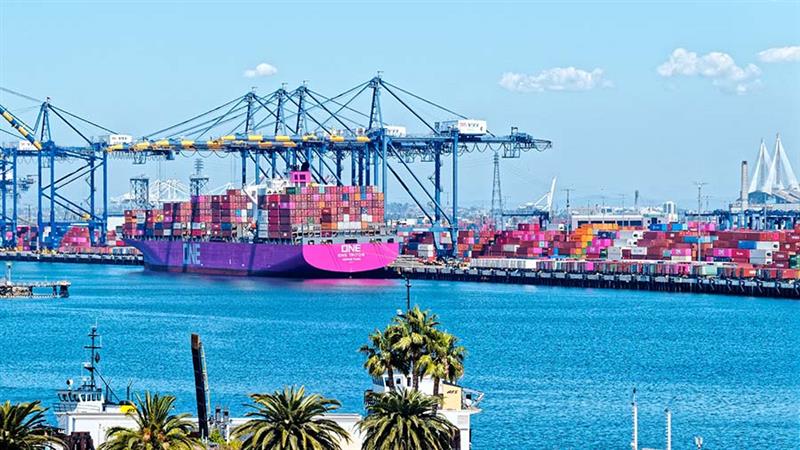China Regulatory Brief: Reduced Import Tariffs and China-Chile Free Trade Agreement
China to Reduce Import Tariffs on Certain Consumer Goods
On May 21, China’s Customs Tariff Commission released the “Circular on the Adjustment of Daily Consumer Goods Import Tax (Shui Wei Hui [2015] No.6).” Starting June 1, 2015, China will reduce a number of import tariff rates for clothing, footwear, skincare products, diapers and other consumer goods, with an average reduction of more than 50 percent. Specifically, import tariffs for suits and fur garments will be reduced from 14–23 percent to 7–10 percent, import tariffs on shoes and sports shoes will be reduced from 22–24 percent to 12 percent, import tariffs for paper diapers will be reduced from 7.5 percent to only two percent, and import tariffs for skincare products will be reduced from five percent to two percent. The complete list of the reduced tax rates can be found here.
China and Chile to Upgrade Free Trade Agreement
On May 24, Chinese Premier Li Keqiang arrived in Chile’s capital city of Santiago. Chinese senior officials proposed that the Free Trade Agreement (FTA) between China and Chile be upgraded to cover more products and expand tax breaks. Chinese enterprises are encouraged to invest in Chile’s wind energy industry and the construction of hydropower and photovoltaic power stations. Following the proposal, the two countries signed a double taxation agreement (DTA), marking China’s 100th tax agreements signed with other countries.
Chile was the first country in Latin America to sign an FTA with China, and this year marks the pact’s 10th anniversary. In Latin America, Chile is China’s third-largest trading partner. The bilateral trade between the two sides reached US$ 34.1 billion in 2014.
![]() RELATED: Hong Kong-Chile FTA Enters into Force
RELATED: Hong Kong-Chile FTA Enters into Force
China to Set up Comprehensive Bonded Zone in Shandong Province
China’s State Council has recently approved plans for a new comprehensive bonded zone in Dongying, Shandong Province, which will be the 44th comprehensive bonded zone in China. As stipulated in the plan, the Dongying Comprehensive Bonded Zone will focus on bonded warehousing logistics services, featuring services such as international trade and finance leases in the petroleum equipment and rubber tire industries. Further, the Dongying Bonded Zone will enjoy the same special policies for foreign exchange and tax returns as Yangshan Bonded Zone in Shanghai and Zhejiang.
Guangzhou Releases New Rules on Maternity Leave
On May 26, the Guangzhou municipal Human Resources and Social Security Bureau released the new rules on employees’ maternity leave, which is now seeking public comments. According to the new rules, instead of the local social security bureau, enterprises will be required to pay employees during their additional maternity leave (i.e., paternity leave and late maternity leave) based on their monthly wage. Full details on the local regulations on employees’ maternity leave and maternity allowance can be found in our article here.
|
Asia Briefing Ltd. is a subsidiary of Dezan Shira & Associates. Dezan Shira is a specialist foreign direct investment practice, providing corporate establishment, business advisory, tax advisory and compliance, accounting, payroll, due diligence and financial review services to multinationals investing in China, Hong Kong, India, Vietnam, Singapore and the rest of ASEAN. For further information, please email china@dezshira.com or visit www.dezshira.com. Stay up to date with the latest business and investment trends in Asia by subscribing to our complimentary update service featuring news, commentary and regulatory insight. |
![]()
 Tax, Accounting, and Audit in China 2015
Tax, Accounting, and Audit in China 2015
This edition of Tax, Accounting, and Audit in China, updated for 2015, offers a comprehensive overview of the major taxes foreign investors are likely to encounter when establishing or operating a business in China, as well as other tax-relevant obligations. This concise, detailed, yet pragmatic guide is ideal for CFOs, compliance officers and heads of accounting who must navigate the complex tax and accounting landscape in China in order to effectively manage and strategically plan their China operations.
Using China’s Free Trade & Double Tax Agreements
In this issue of China Briefing, we examine the role of Free Trade Agreements and the various regional blocs that China is either a member of or considering becoming so, as well as how these can be of significance to your China business. We also examine the role of Double Tax Treaties, provide a list of active agreements, and explain how to obtain the tax minimization benefits on offer.
 Double Taxation Avoidance in China: A Business Intelligence Primer
Double Taxation Avoidance in China: A Business Intelligence Primer
In our twenty-two years of experience in facilitating foreign investment into Asia, Dezan Shira & Associates has witnessed first-hand the development of China’s double taxation avoidance mechanism and established an extensive library of resources for helping foreign investors obtain DTA benefits. In this issue of China Briefing Magazine, we are proud to present the distillation of this knowledge in the form of a business intelligence primer to DTAs in China.
- Previous Article Cina: A breve la nuova legge sugli annunci pubblicitari
- Next Article China, India & Vietnam: Setting Up in Asia’s Investment Hotspots – New Issue of Asia Briefing Magazine





























